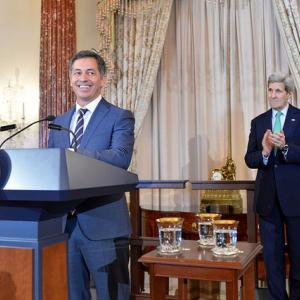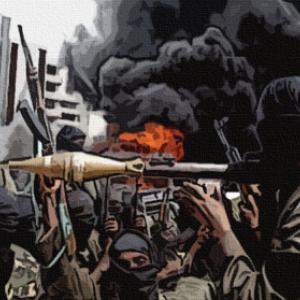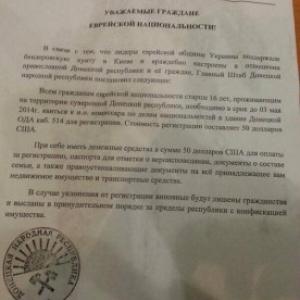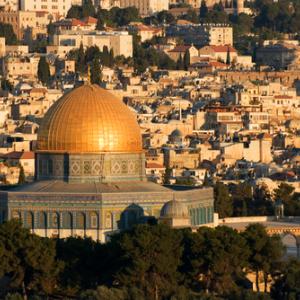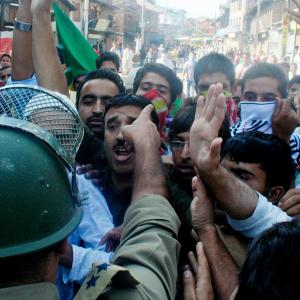Oren Dorell writes for USA Today.
Posts By This Author
First Diplomat for LGBT Rights Speaks Out
Randy Berry, 50, is the U.S. special envoy for the human rights of lesbians, gay men, bisexuals, and transgender people, the first such post ever created by a nation, according to the State Department.
In that trailblazing role, he said, he has an opportunity to help his two children grow up in a world more accepting than the one he was born into.
As someone who has “walked the personal journey of coming out,” Berry said, he knows how crucial positive messages and support are to a U.S. and global LGBT community plagued by young suicides.
In a Nutshell: What Is Boko Haram?
Boko Haram is among the most vicious terrorist groups operating in North Africa, home to some of the worst Islamist extremists in the world.
The group was begun in 2002 by Mohammed Yusuf, a cleric whose aim is an Islamic state in Nigeria. He was killed in 2009. The group’s current leader, Abubakar Shekau, surfaces sporadically in videotaped messages.
Jews Ordered to Register in East Ukraine
Jews in the eastern Ukrainian city of Donetsk where pro-Russian militants have taken over government buildings were told they have to “register” with the Ukrainians who are trying to make the city become part of Russia, according to Israeli media.
Jews emerging from a synagogue say they were handed leaflets that ordered the city’s Jews to provide a list of property they own and pay a registration fee “or else have their citizenship revoked, face deportation, and see their assets confiscated,” reported Ynet News, Israel’s largest news website.
Donetsk is the site of an “anti-terrorist” operation by the Ukraine government, which has moved military columns into the region to force out militants who are demanding a referendum be held on joining Russia.
Fate of Jerusalem Looms Over Peace Talks
As Israeli and Palestinian negotiators prepare for preliminary talks in Washington today, the future of Jerusalem — holy to three faiths — looms as the thorniest and most difficult issue to resolve.
The State Department announced Sunday that the two sides had accepted invitations from Secretary of State John Kerry to come to Washington “to formally resume direct final status negotiations.” The department said two days of initial meetings will begin this evening.
The announcement came shortly after Israeli Prime Minister Benjamin Netanyahu’s Cabinet approved the release of 104 Palestinian prisoners, a key part of the Kerry-brokered deal.
Syrian Civil War Forces Sunni and Shiite Muslims to Pick Sides
The Syrian civil war is increasingly drawing in nations across the Middle East, a regionwide conflict that threatens to pit world powers against each other and Muslim against Muslim.
On Wednesday, the United Nations Human Rights Council pushed through a resolution to investigate the abuses of the Syrian regime, over the objections of the regime’s ally Russia, who insisted the West was making matters worse.
U.S. Secretary of State John Kerry continued his travels in the region, trying to get all parties to agree to a peace conference in Geneva in the next few weeks. But councils representing the Syrian rebels again refused to join, demanding that representatives of Bashar Assad’s regime be banned.
In a war that is now clearly pitting the two main branches of the Islam — Sunni and Shiite Muslims — against one another, the dithering and differences between world powers is bringing about a desperate situation, according to experts.
Boston Mosque Says Bombing Suspect Had Outbursts But Wasn’t Violent
CAMBRIDGE, Mass. — After two troubling outbursts at a local mosque, leaders there told Boston Marathon bombing suspect Tamerlan Tsarnaev he would no longer be welcome if he continued disrupting services.
Leaders at the Islamic Society of Boston‘s mosque in Cambridge say Tsarnaev, 26, who died early Friday after a shootout with police, “disagreed with the moderate American-Islamic theology” of the mosque, but they never had “any hint” the brothers might be violent.
On one occasion in November at weekly prayer, Tsarnaev challenged an imam who said in his sermon that it was appropriate to celebrate U.S. national holidays, such as July 4th and Thanksgiving, the statement said.
Tsarnaev argued that such celebrations are “not allowed in the faith.” When the preacher met with Tsarnaev after the prayer, Tsarnaev “repeatedly argued his viewpoint, and then left,” the statement said.
Survey: Syrian Rebels Seek Islamic Democracy
Members of the Syrian opposition generally want a democratic government that protects the rights of minorities, though many also want a constitution based on Islam, according to a recent survey.
Their aspirations are important because the Obama administration has said it is refraining from arming the opposition, which has been pummeled by Syrian security forces for 18 months, in part out of fear of igniting sectarian violence. There's also fear that weapons would reach Islamist radicals who would threaten allies in the region.
The survey by the International Republican Institute, which trains democracy activists around the world, found high support for a government that "respectfully acknowledges religion" and treats all religions equally. The second-most popular model of choice was for a constitution "based on Islam."
"Most of the opposition is Sunni Muslims and they are democratically minded, but they want a government based on some kind of Islamic law or that follows Islamic guidelines," says Elizabeth O'Bagy, an analyst at the Institute for the Study of War who helped the survey writers find contacts in the opposition movement.
Middle East Riots Fueled by Competition Between Radicals, Moderates
Anti-American riots that have spread to more than a dozen countries across the Middle East are a sign of fissures between radical and more moderate Islamists that are vying for power as their societies undergo change, Middle East experts say.
Whether U.S. foreign policy has helped create a political environment where radicals are struggling to remain relevant, or emboldened extremists to act out, is a matter of disagreement.
President Obama's approach to the Arab Spring, to engage with the Islamists and not the secularists, "is seen by our foes as disengagement, while the radicals are not backing off," said Walid Phares, an adviser to the Anti-Terrorism Caucus in the U.S. House of Representatives and author of the 2010 book The Coming Revolution: Struggle for Freedom in the Middle East.
"When we withdraw, they advance."
Tamara Wittes, who served as deputy assistant secretary of state for Near Eastern Affairs until a few months ago, sees it differently.
The U.S. military withdrawal from Iraq removed "a massive source" of grievance for ultra-conservative Muslims, called Salafis, who have been leading the charge in the recent protests and who are ideologically close to Islamic terrorists who have warred with the U.S., Wittes said. "Now they're left trying to gin up anti-American feelings over this campy movie. If Salafi groups are left having to troll the Internet for a pretext, I think we're in pretty good shape."
